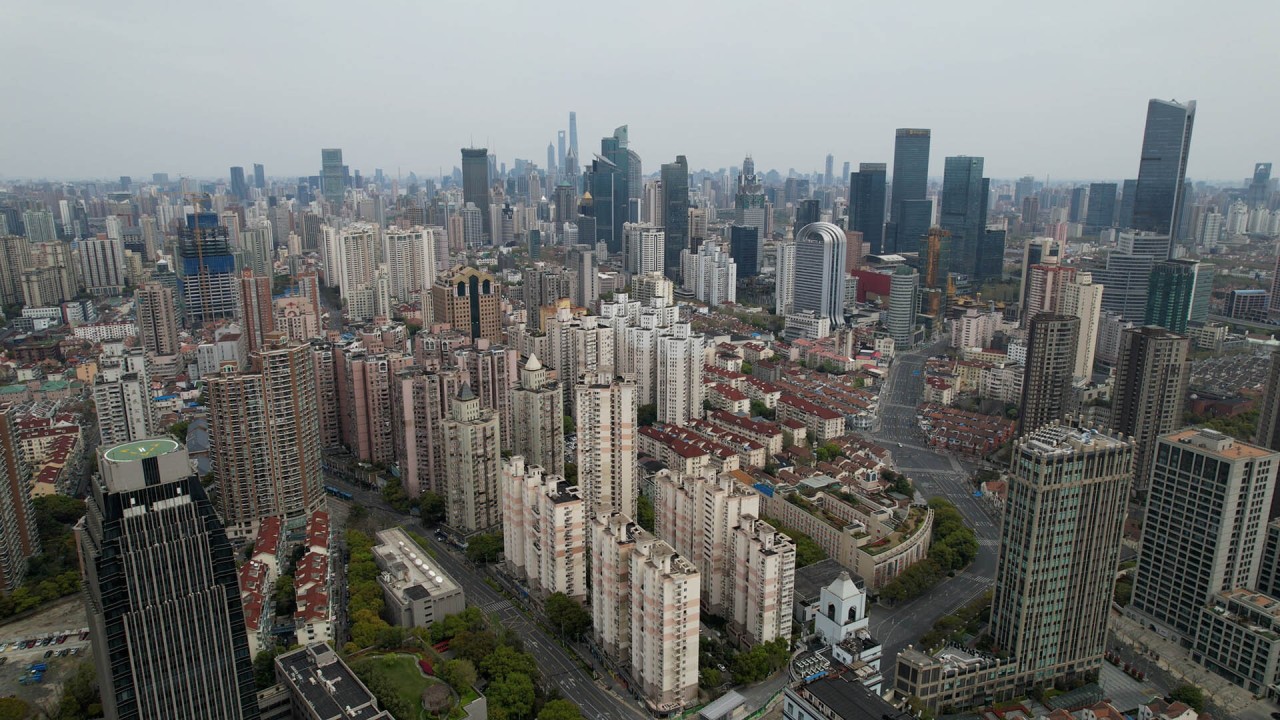
Chinese state media tries to rally support for zero-Covid as discontent grows over lockdowns
- Communist Party mouthpiece sends the message that even as cases are rising the strategy – part of Xi Jinping’s political legacy – is still China’s best option
- It follows economist Paul Krugman’s remarks that the response has gone wrong due to the weakness of autocratic government, ‘like Putin’s failures in Ukraine’
Health officials on Friday said more than 100,000 locally transmitted cases were reported in mainland China in March.
State news agency Xinhua on Thursday published a commentary saying the country must press on with what Beijing calls “dynamic zero-Covid” – a policy that aims to eliminate local cases and prevent the virus from spreading. It sought to rally public support but also called for adjustments to the policy to minimise disruption.
It followed another editorial published by the Communist Party mouthpiece on Monday highlighting Xi’s leadership in China’s fight against the virus, praising his vision and efforts to protect lives.
Both were carried by most state media outlets, and the message in both was that even as cases are rising the zero-Covid strategy is still China’s best option.
China’s cash-and-stick approach to vaccinating elderly against Covid-19
It comes ahead of the twice-a-decade party congress in autumn, at which Xi is expected to secure an unprecedented third term.
Leading China to become one of few countries to have kept the virus at bay – as the global death toll has passed 6 million – has been seen as one of Xi’s main political legacies.
While there has been public support for the zero-Covid policy, there is growing discontent over the response to the latest wave of cases.
The elimination strategy – using lockdowns, compulsory mass testing and quarantine to stamp out local outbreaks – has also put strain on the economy, which was already facing headwinds from the Ukraine war, sluggish domestic consumption and decoupling from the United States.
Several Chinese epidemiologists have called for a review of the policy, pointing out that Omicron – a highly infectious but less deadly variant – is now the dominant strain in China.
Criticism has also come from the West, with economist and Nobel laureate Paul Krugman writing in The New York Times on March 17 that China’s Covid-19 response had gone “very, very wrong” due to the “inherent weakness of the autocratic government”, comparing it to “[Vladimir] Putin’s failures in Ukraine”.
Shanghai lockdown puts pressure on China GDP growth, ‘uncertainties’ to come
Xinhua’s commentary on Thursday did not directly mention Krugman’s remarks but said it was evident from the US experience – where more than 80 million cases have been reported and over 970,000 deaths – that the policies of some Western nations had resulted in higher case numbers and deaths, especially among the old and young.
It cited another New York Times article that said it was still possible for China to win the pandemic fight without causing widespread disruption to the global supply chain, praising Shenzhen as a good example for its “precise prevention and control”.
The Xinhua commentary concluded that China had the “experience, conditions and ability to uphold” the zero-Covid policy, urging the nation not to let its guard down and to overcome fatigue and complacency. It said the fight against the virus would continue to be “complex, arduous and tedious”.
Observers say pandemic control is now a key performance measure for senior cadres ahead of the party congress, where a major leadership reshuffle is expected and many will be competing for a seat on the policymaking Central Committee.
Gu Su, a political scientist at Nanjing University, said Beijing had made clear to cadres at all levels that failures on pandemic control would affect their careers, noting that many officials had been punished over outbreaks.
He said the party’s anti-corruption watchdog and its organisation department, which handles personnel, were working together to evaluate the performance of cadres in the pandemic fight.
“Many people are watching to see what will happen to Shanghai party chief Li Qiang – who was expected to be on the list for promotion – as the financial centre struggles to contain the outbreak,” Gu said.
Chinese cleaner sleeps in public toilet in lockdown, cleans it for locals without loos
According to Gabriel Wildau, managing director at US consulting firm Teneo, China’s “dynamic zero-Covid” policy is quietly transforming into a “low-Covid” policy and chaos – not caseloads – is now the key metric for success or failure.
“The key focus is on preventing the kind of chaos that we saw at hospitals in Hong Kong or the logistical failures that happened in Xian. If stability is maintained, Xi can consider the policy a success, even if caseloads are higher than what we’re used to seeing,” Wildau said.
He said Hong Kong was serving as a source of data and “a cautionary tale” for the mainland.
“The city has long since given up on attempts to eradicate the virus, as more than half of the city’s population may have been infected over the last month,” he said.
“Despite the futility of Hong Kong’s response, cases are now in sharp decline, and the government is loosening restrictions in response to complaints from the business community and ordinary residents.”


